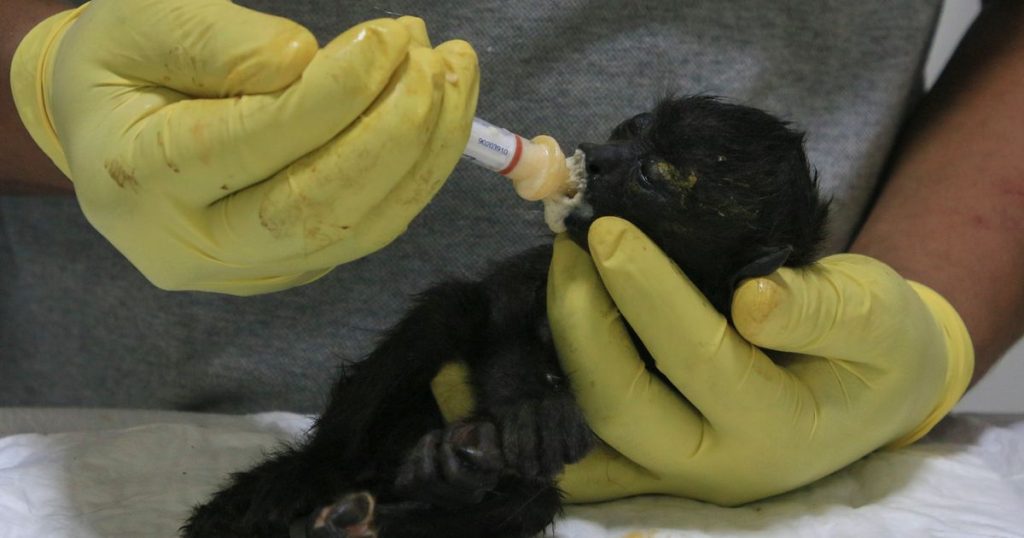A deadly heatwave in Mexico has caused the deaths of at least 26 people and dozens, perhaps hundreds, of howler monkeys since March. The extreme temperatures have reached as high as 45 degrees Celsius (113 degrees Fahrenheit) in some areas of the country. The howler monkeys, known for their powerful vocal calls, have been found dead or dying in the Gulf Coast state of Tabasco since mid-May. A veterinarian in the town of Tecolutilla rushed to save five of the monkeys by treating them for heatstroke with IV drips and ice.
The howler monkeys, normally intimidating with their muscular build and roaring calls, have been seen falling out of trees in a state of severe dehydration. Wildlife biologist Gilberto Pozo, who has witnessed the die-off of about 138 monkeys, believes the deaths are due to a combination of high heat, drought, forest fires, logging depriving them of resources, and possibly other factors. Pozo emphasizes the significance of the howler monkeys as a cherished and emblematic species in the jungle-covered state of Tabasco, where they help locals by signaling the time of day with their howling.
Local people have tried to help the monkeys by providing water and fruit, but Pozo warns that caring for the delicate baby monkeys at home could expose them to pathogens that are potentially fatal. His group, Biodiversity Conservation of The Usumacinta, is working to set up specialized recovery stations for the monkeys and is organizing a team of veterinarians to provide necessary care. Despite the delay in response from the federal government, President Andrés Manuel López Obrador expressed his support for rescue efforts and acknowledged the urgency of the heat issue in Mexico.
With temperature records being broken in multiple cities and water supplies running low due to below-average rainfall, Mexico is facing a severe heatwave crisis. Power blackouts, water shortages, and limitations on ice purchases at convenience stores have become a reality for Mexican residents dealing with the scorching temperatures. The howler monkey deaths serve as a warning sign of the broader impact of climate change on ecosystems. As a sentinel species, the monkeys are providing valuable insights into the effects of the changing climate on wildlife and the environment.
Efforts to rescue and rehabilitate the affected howler monkeys are essential to maintaining the balance of ecosystems in Mexico. The federal government’s acknowledgment of the problem and the support for rescue initiatives are steps in the right direction. By addressing the root causes of the heatwave, such as drought, forest fires, and deforestation, authorities can work towards preventing similar tragic events in the future. The howler monkey die-off highlights the interconnectedness of human activities and climate change, emphasizing the need for sustainable environmental practices and conservation efforts to protect vulnerable species.


